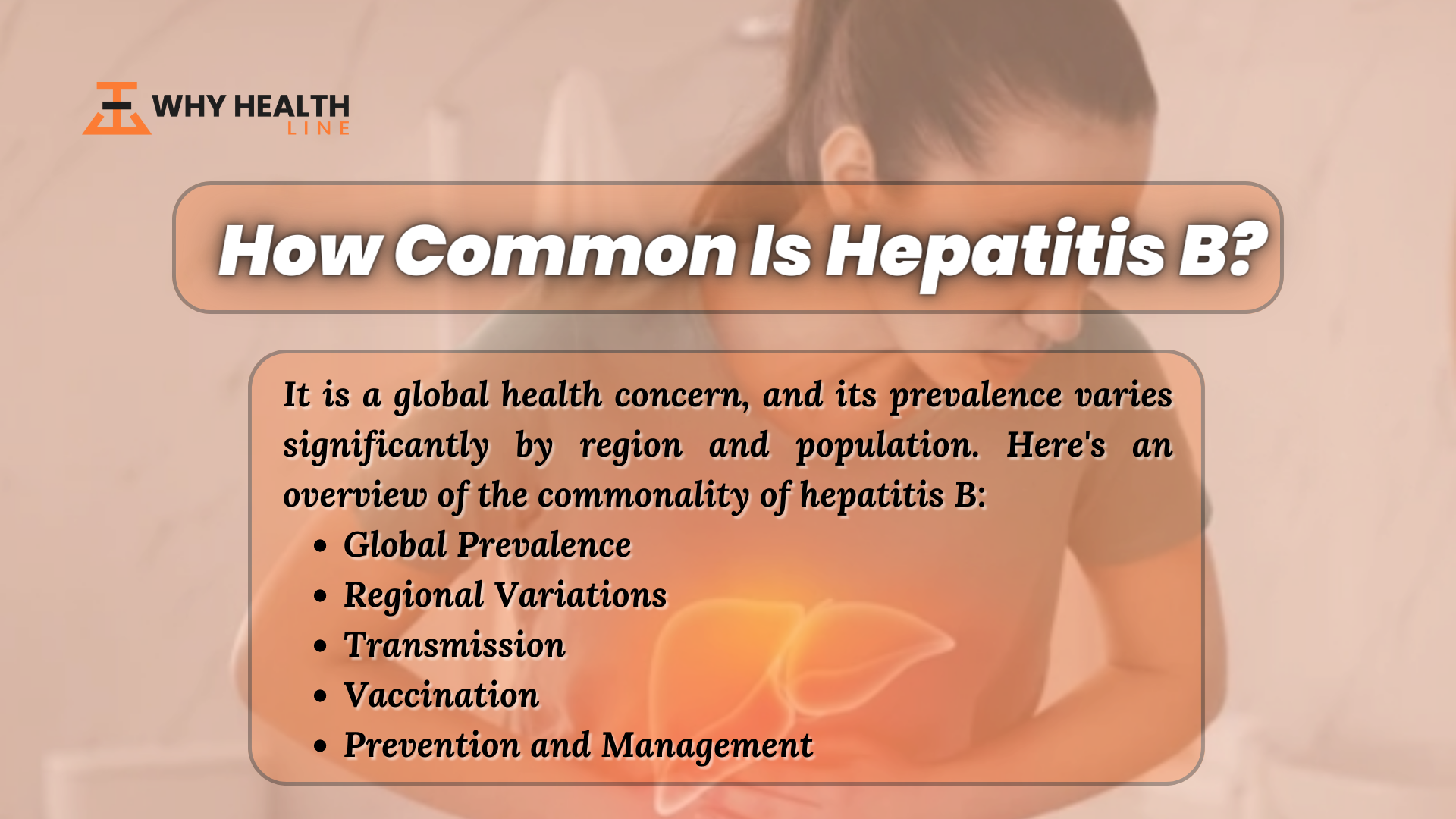Hepatitis B is a virus that can cause serious harm to your liver without exhibiting any initial symptoms. While some people may only experience mild effects, others could develop a chronic form of the illness that may lead to liver failure, scarring, and cancer.
Therefore, it is crucial to stay aware of the risks and take proactive steps in order to protect yourself from this potentially life-threatening disease.
If you are worried about this illness and want to take charge of your health, this article has got you covered. It will provide you with all the information you need to combat this infection and enable you to live a healthy life. Let’s explore!
What is Hepatitis B?
HBV is a virus that can lead to a liver infection, but it can be prevented by getting vaccinated. This virus is usually transmitted through infected bodily fluids like blood, semen, and others that enter the body of someone who is not infected.
Hepatitis B Symptoms
Some individuals who contract HBV may not experience any symptoms, while others may suffer from fatigue, poor appetite, stomach pain, nausea, and jaundice. Other symptoms may include:
- Fever
- Fatigue
- loss of appetite
- Nausea
- Vomiting
- Abdominal pain
- Dark urine
- Clay-coloured bowel movements
Seek medical attention promptly if you notice any of these symptoms, as early diagnosis and treatment can improve your prognosis.
Causes of Hepatitis B
The liver damage caused by hepatitis B is commonly a result of infections from viruses, bacteria, or parasites, as well as alcohol or poison consumption. Nonetheless, by taking preventive measures such as avoiding harmful substances and seeking medical assistance as needed, we can safeguard ourselves from this contagious infection.
Hepatitis B Diagnosis
Medical practitioners usually conduct a physical examination to identify any indications of liver impairment, such as discomfort in the abdomen or discolouration of the skin. Other diagnostic procedures that can assist in determining hepatitis B usually include:
- Blood Test: Getting tested for hepatitis B can help you monitor the health of your liver and take necessary steps to manage the condition. Blood tests are a simple and effective way to detect the virus, determine its type, and check for immunity.
- Liver Ultrasound: With the help of transient elastography, ultrasound can provide valuable insights into the extent of liver damage. If needed, a liver biopsy can also be performed to collect a tissue sample for further analysis. These tests can help your healthcare provider tailor a treatment plan that works best for you and ensure your overall well-being.
Hepatitis B Treatment
If you are diagnosed with hepatitis B, it is crucial to talk to your healthcare provider about the treatment options available. Although there is no definitive cure for acute hepatitis B, antiviral medications can be utilized to manage chronic cases. Your healthcare provider can help you decide on the most appropriate approach based on your particular condition.
Treatment for chronic hepatitis B may include:
-
Antiviral Medication
Numerous treatments are accessible for hepatitis B that can effectively slow down the progression of the virus and minimize liver damage. You can take antiviral medications like entecavir, tenofovir, lamivudine, adefovir, and telbivudine orally to combat the virus. Your healthcare provider may recommend taking one of these medications or combining two of them to enhance the treatment response.
-
Liver Transplant
When the liver has been severely damaged, a liver transplant is typically the final course of action. The procedure entails the removal of the damaged liver and its replacement with a healthy one. While most transplants involve livers from deceased donors, a few involve living donors who donate a specific portion of their liver.
Risk Factors of Hepatitis B
There are a multitude of factors that may contribute to the onset of this infection:
- Shared needles during IV drug use.
- Being with someone who has HBV infection.
- An infant that is born to an infected mother.
- Have a job that consistently exposes you to human blood.
By being aware of all these contributing factors, you can take preventive measures in order to protect yourself from this infectious disease.
Hepatitis B Vaccine
Key Takeaways
Hepatitis B is a viral infection that can be transmitted through blood or bodily fluids and can have severe health implications. Symptoms may not manifest right away, so it is crucial to take preventive measures to avoid contracting the disease.
Thankfully, various treatment options are available to manage the condition, and vaccination is a highly effective way to prevent it.
In case you have been exposed to hepatitis B, it is essential to seek medical attention immediately. Early diagnosis and treatment can help prevent the virus from causing long-term harm to your liver. Your healthcare provider can recommend appropriate measures and guide you through treatment to ensure the best possible outcome.
FAQs:
How Long Does Hepatitis B Survive Outside the Body?
The hepatitis B virus can remain active for up to a week outside of the body and can still lead to infection during that time.
Can I Donate Blood If I Have Hepatitis B?
People who have contracted hepatitis B, other types of viral hepatitis, HIV, or certain infections are not allowed to donate blood due to the possibility of transmission of this disease through blood.
How Contagious is Hepatitis B?
Hepatitis B is a highly contagious virus that can be transmitted in a similar way to HIV through infected blood, semen, and vaginal secretions.
In fact, it is much easier to contract hepatitis B than HIV, as the virus can be up to 100 times more concentrated in the bloodstream of an infected individual.



